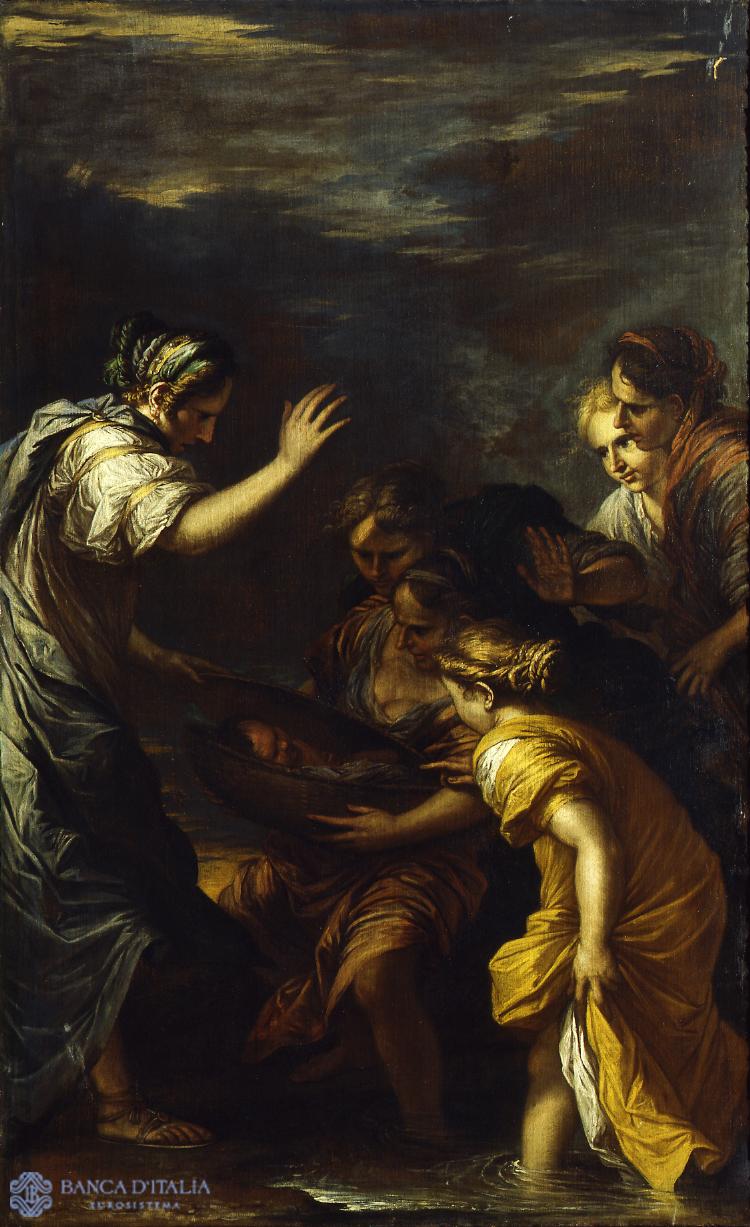The Finding of Moses is a subject that Rosa used on several occasions. The painting in the Detroit Institute of Arts differs from the one in the Bank of Italy in that a vast landscape dominates the scene, although the figures surrounding Moses are very similar, the version in a private collection in the US is closer to the Bank of Italy’s in both format and composition.
The artist uses the pharaoh’s daughter’s chance discovery of Moses floating in the Nile as the pretext for a potent theatrical representation of human gestures and emotions. Rosa, himself an actor, focuses on the facial expressions and hand gestures of the girls. The Bank of Italy’s version was painted in the Neapolitan artist’s mature period, around 1770, when his particular interest was for compositions centred on biblical, philosophical and mythological subjects.
There are parallels between this painting and the one of Ulysses and Nausicaa in the Los Angeles County Museum and of Glaucus and Scylla in the Musées Royaux des Beaux-Arts de Belgique in Brussels, with which it shares a disturbing, picturesque vision of nature. This new perception, almost pre-Romantic one might say, was probably encouraged by the impressions gained by the artist during recent travels and by his renewed enthusiasm for Venetian painting.
Salvator Rosa, Ritrovamento di Mosè
The Finding of Moses
Painting
17th century AD
Biblical - Historical - Mythologic

Artist
Date
1660s
Material and technique
Oil on canvas
Measurements
200,5 x 122 cm
Compiler
Alessandro Zuccari
